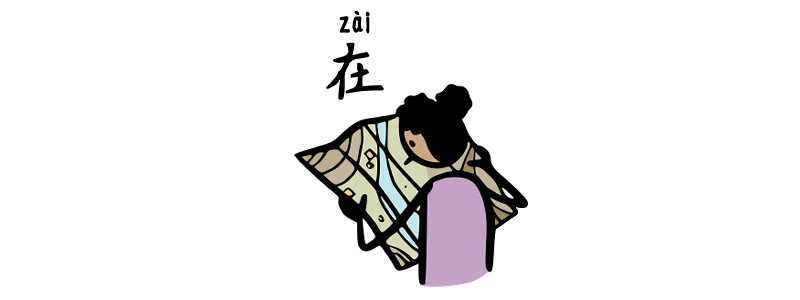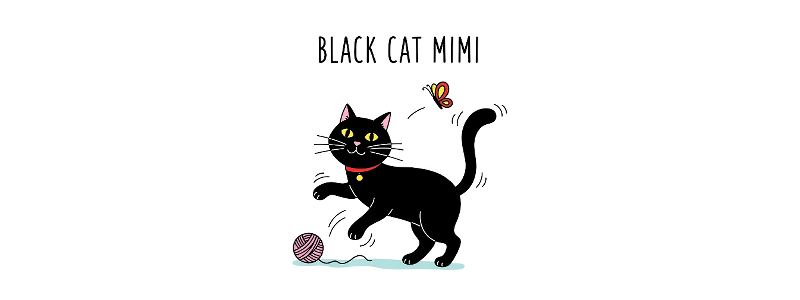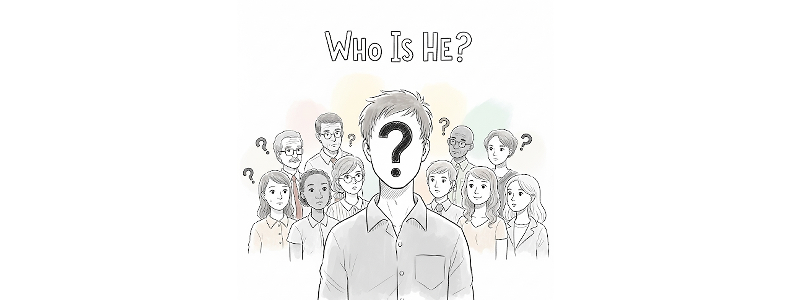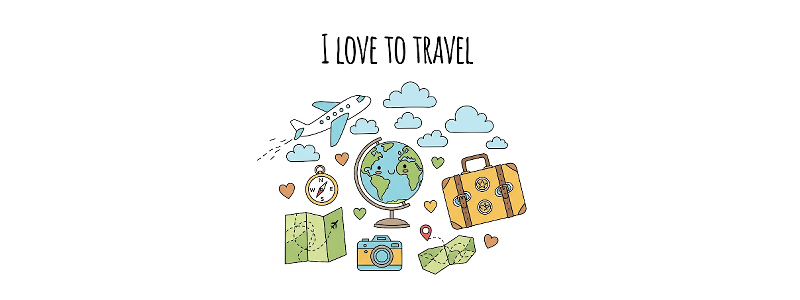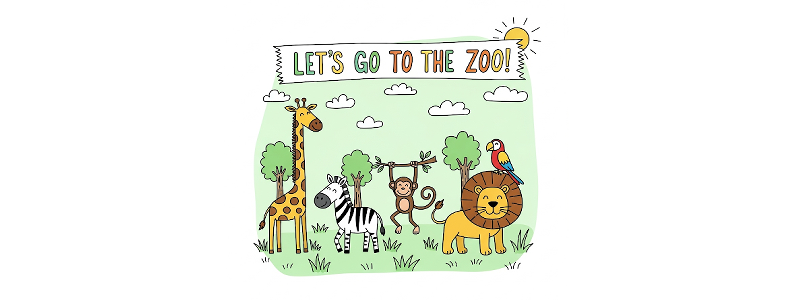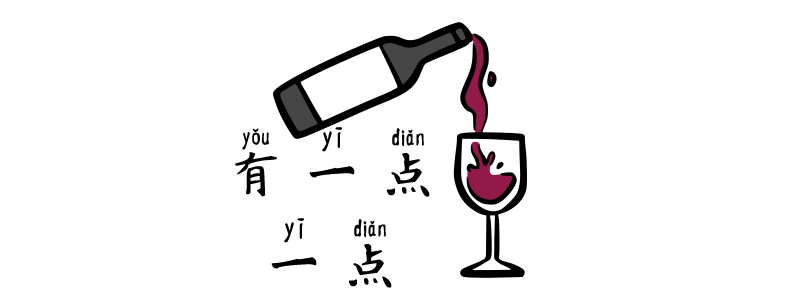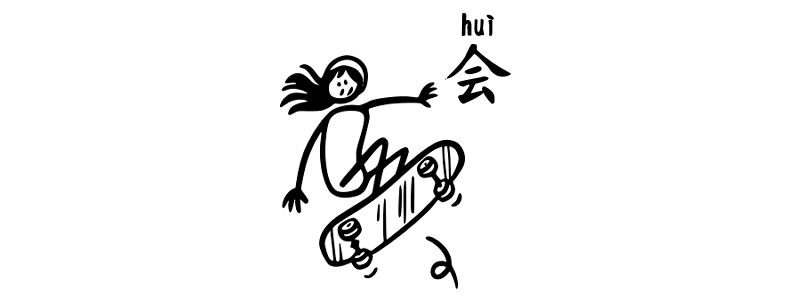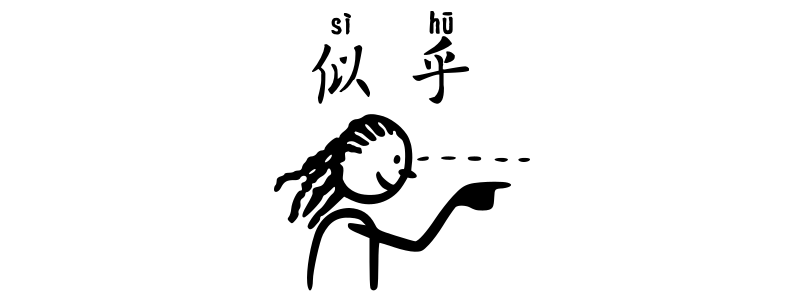Grammar Point:Chinese indicates the existence of something in a particular place by adding the verb 在 zài. In this function, 在 zài can be translated as ‘be in’ or ‘be at’ in English. Structure S + 在 zài + location 我wǒ在zài家jiā我wǒ在zài家jiāI am at home. 老師lǎoshī在zài美國měiguó老师lǎoshī在zài美国měiguóThe teacher is in the U.S. 圖書館túshūguǎn在zài學校xuéxiào的de3 樓lóu图书馆túshūguǎn在zài学校xuéxiào的de3 楼lóuThe library is…
Author: tiffany
在 zài as location maker
Grammar Point:The way Chinese expresses locations is by adding a preposition 在 zài and a locative word (Fāngwèi cí.) Here are some common locative words. 方位詞/方位词 Fāngwèi cí 上 shàng up, top, above 下 xià down, bottom, under 裡里 lǐ in 外 wài out 前 qián front 後后 hòu back, behind 左 zuǒ left 右…
HSK1 Reading Practice – Hēimāo Mīmī
HSK1 Reading Practice Remember to use the menu at the top right of the article to switch between Traditional and Simplified Chinese. Vocabulary 貓咪māomī猫咪māomīkitty, cat 我wǒ有yǒu一yì隻zhī可愛kěài的de貓咪māomī我wǒ有yǒu一yì只zhǐ可爱kěài的de猫咪māomīI have a cute kitty. 花園huāyuán花园huāyuángarden 房子fángzi後面hòumiàn有yǒu一個yíge花園huāyuán房子fángzi后面hòumian有yǒu一个yíge花园huāyuánThere is a garden behind the house. 黑色hēisè黑色hēisèblack 他tā喜歡xǐhuān穿chuān黑色hēisè的de衣服yīfú他tā喜欢xǐhuan穿chuān黑色hēisè的de衣服yīfuHe likes to wear black clothes. 樹shù树shùtree 公園gōngyuán裡lǐ有yǒu很hěn多duō樹shù公园gōngyuán里lǐ有yǒu很hěn多duō树shùThere are many trees in the park. 生氣shēngqì生气shēngqìangry 她tā為什麼wèishénme生氣shēngqì她tā为什么wèishénme生气shēngqìWhy…
HSK2 Reading Practice – Who Is He
HSK2 Reading Practice Remember to use the menu at the top right of the article to switch between Traditional and Simplified Chinese. Vocabulary 玩wán球qiú玩wán球qiúto play ball 他tā每天měitiān都dōu和hé朋友péngyǒu玩wán球qiú他tā每天měitiān都dōu和hé朋友péngyou玩wán球qiúHe plays ball with his friends every day. 滾gǔn滚gǔnto roll 球qiú從cóng地上dìshàng滾gǔn到dào我wǒ的de腳jiǎo邊biān球qiú从cóng地上dìshang滚gǔn到dào我wǒ的de脚jiǎo边bianThe ball rolled to my feet from the ground. 公園gōngyuán公园gōngyuánpark 我wǒ喜歡xǐhuān週末zhōumò去qù公園gōngyuán散步sànbù我wǒ喜欢xǐhuan周末zhōumò去qù公园gōngyuán散步sànbùI like to take a walk in the park…
HSK2 Reading Practice – I Love To Travel
Reading Practice Remember to use the menu at the top right of the article to switch between Traditional and Simplified Chinese. Vocabulary 旅行lǚxíng旅行lǚxíngtravel 我wǒ想xiǎng去qù中國Zhōngguó旅行lǚxíng我wǒ想xiǎng去qù中国Zhōngguó旅行lǚxíngI want to travel to China. 年輕人niánqīngrén年轻人niánqīngrényoung person 那些nàxiē年輕人niánqīngrén在zài公園gōngyuán裡lǐ唱歌chànggē那些nàxiē年轻人niánqīngrén在zài公园gōngyuán里lǐ唱歌chànggēThose young people are singing in the park. 打算dǎsuàn打算dǎsuànplan, intend 我wǒ打算dǎsuàn明年míngnián學習xuéxí日文rìwén我wǒ打算dǎsuàn明年míngnián学习xuéxí日文rìwénI plan to study Japanese next year. 禮物lǐwù礼物lǐwùgift, present 我wǒ準備zhǔnbèi了le一個yíge禮物lǐwù給gěi你nǐ我wǒ准备zhǔnbèi了le一个yíge礼物lǐwù给gěi你nǐI prepared a gift for…
HSK2 Reading Practice – Let’s go to the Zoo
HSK2 Reading Practice Remember to use the menu at the top right of the article to switch between Traditional and Simplified Chinese. Vocabulary 動物園dòngwùyuán动物园dòngwùyuánzoo 昨天zuótiān我們wǒmen去qù動物園dòngwùyuán看kàn熊貓xióngmāo昨天zuótiān我们wǒmen去qù动物园dòngwùyuán看kàn熊猫xióngmāoYesterday we went to the zoo to see pandas. 期待qídài期待qīdàito look forward to 他tā很hěn期待qídài明天míngtiān的de生日shēngrì派對pàiduì他tā很hěn期待qīdài明天míngtiān的de生日shēngrì派对pàiduìHe is looking forward to tomorrow’s birthday party. 背包bēibāo背包bēibāobackpack 她tā每天měitiān背bēi著zhe背包bēibāo去qù上學shàngxué她tā每天měitiān背bēi着zhe背包bēibāo去qù上学shàngxuéShe carries a backpack to school every day. 褲子kùzi裤子kùzipants…
In total – 共 gòng
Grammar Point:The term 共 gòng in Chinese often translates to “altogether” or “in total.” It’s often paired with a numeral or a quantity to represent the entirety of something. Structure 共 gòng + (V) + Numeral or Quantity In daily conversation, it is more common to say 一共 yígòng. 共gòng有yǒu三十sānshí人rén出席chūxí會議huìyì共gòng有yǒu三十sānshí人rén出席chūxí会议huìyìA total of thirty people attended…
A little bit – 有一点 yǒuyìdiǎn & 一点 yìdiǎn
Grammar Point:Both 有一點点 yǒuyīdiǎn and 一點点 yìdiǎn convey the notion of ‘a little’ or ‘a bit,’ but with slight nuances. In China, 有點兒点儿 yǒudiǎnr is more commonly used instead of 有一點点 yǒuyìdiǎn. Structure 有一點点 yǒuyìdiǎn + Adjective 一點点 yìdiǎn + Noun 今天jīntiān天氣tiānqì有一點yǒuyìdiǎn熱rè今天jīntiān天气tiānqì有一点yǒuyìdiǎn热rèToday’s weather is a bit hot. 我wǒ弟弟dìdi有一點yǒuyìdiǎn矮ǎi我wǒ弟弟dìdi有一点yǒuyìdiǎn矮ǎiMy younger brother is a bit short. 我wǒ覺得juéde那nà家jiā店diàn的de珍珠奶茶zhēnzhūnǎichá有一點yǒuyìdiǎn貴guì我wǒ觉得juéde那nà家jiā店diàn的de珍珠奶茶zhēnzhūnǎichá有一点yǒuyìdiǎn贵guìI…
Can – Skills 会 huì
會/会 huì 會会 huì emphasizes a skill that you have learned or been trained to do. It refers to the ability to do something that has been acquired through training or education, and is often used to describe skills, such as speaking a language or playing a musical instrument. It is more like “knowing how…
“Seems” in Chinese – 似乎 sìhū
Grammar Point:The Chinese word 似乎 sìhū is similar to saying “seems like” or “seems” in English. It helps describe when something appears a certain way based on what you see or feel, but it’s not confirmed or certain. Structure S + 似乎 sìhū + Description/Action/Verb Phrase 似乎 sìhū is actually the formal term for 好像…
